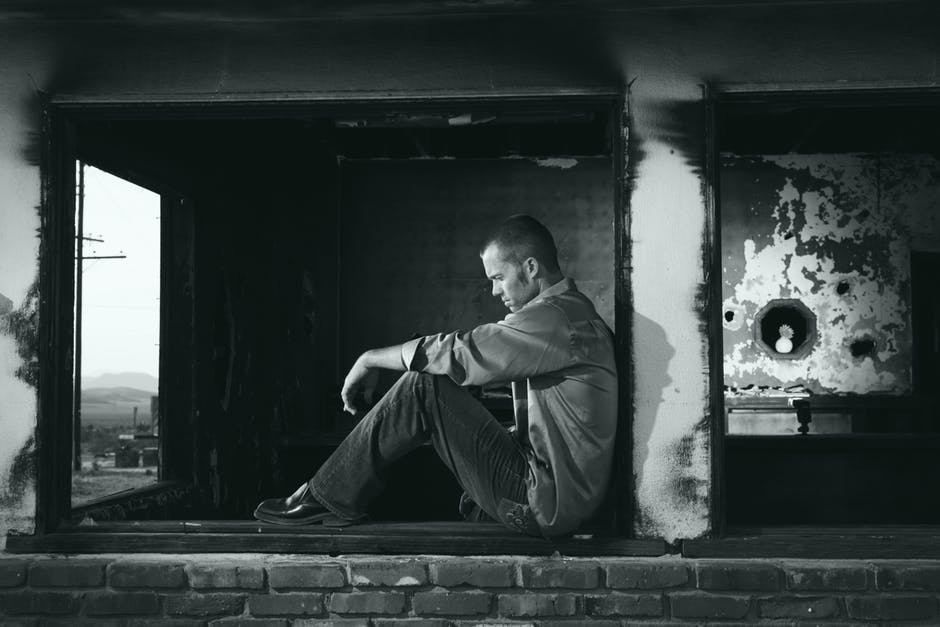A study has revealed that the reason the male suicide rate is so high (it’s the number one killer of men under 45 in the UK) is because so many men strongly identify with the masculine norm of self-reliance. In other words, since the idea of not seeking help is considered ‘manly’, it means men are letting their mental health struggles go unnoticed and untreated – to the point that they can no longer cope.
The authors of the study argued that societal standards of ‘manhood’ are to blame and need to be challenged. We need to rethink telling boys not to cry and expecting men to ‘toughen up’ (i.e. keep their emotions tightly bottled up in distressing situations). Unfortunately, even men who act against these cultural expectations, who fully express themselves and ask for help, will be troubled by a feeling of emasculation.
My message to men struggling with mental health is that, in the words of countercultural figure Terence McKenna, “Culture is not your friend”. It is culture which makes you feel like a ‘wimp’ for wanting to talk honestly about the pain trapped in your mind, invisible to the outside world. This narrative has to be rigorously questioned.
Why do we see ‘manliness’ as a capacity to repress, ignore, deny and hide mental suffering and turmoil? All of our lives are turbulent at times – and this pain is either visibly obvious or it isn’t. But it is pain, nonetheless. A physical injury hurts. And so does grief. Who is to say that psychological pain is easier and more bearable than physical pain?
Admittedly, it takes sustained effort to bottle up emotions and hold back the tears. But I don’t see this as the bravest, strongest or most conquerable thing to do. If you want to wrap up these attributes with masculinity, then that’s fine. But ask yourself: does it not take more bravery to speak the truth? Does it not take a strong character to let darkness out in the open and to confront it forthrightly? And would someone who is strong not wish to conquer all challenges, both inner and outer?
These are not uniquely masculine traits, of course; but anyone who thinks that they are – or who doesn’t, but wants to live authentically – will speak the truth of who they are. Those men who successfully repress their feelings without self-destructing appear strong by our cultural standards. Nevertheless, heroes do not archetypically run away from threatening forces. Heroes in stories are never considered weak for seeking guidance, help and support during their journey of ordeals. So why should seeking help for an inner ordeal be viewed any differently? It takes much more strength and bravery to confront your psychological pain head on than it does to avoid it. This may involve giving voice to that pain and reaching out for help. But why should overcoming mental illness in this way be considered weak? Why is it a weakness to want – and to seek out – alleviation for your suffering?
I don’t mean to suggest that not seeking help is therefore cowardly or weak because it’s not. To reiterate, it takes resolve and strength to carry on with one’s life with inner chaos hidden from the outside world. But I do want to emphasise that being open, honest and asking for help is not somehow the most ‘unmanly’ thing that a man could do. In a culture in which mental illness is heavily stigmatised, and is pervasively a cause for embarrassment, shame, guilt and self-criticism (for men in particular), it is undoubtedly brave to speak out in spite of these unnecessary obstacles.
It would be easy for me to say that if you hear the phrase ‘man up’ to just disregard it as idiotic. If you hear it growing up, from your parents, your peers – whoever it may be – it is an attitude which will leave you with a particular model of what it means to be a man, whether deep down you want to incorporate it or not. This attitude isn’t innocuous. It promotes a great deal of suffering.
Challenging this cultural attitude depends on the conversations we have in different areas of our life: at home, at work, and in various social situations. Each man must also take on the difficult task of taking a strong countercultural stance, and constantly discard this toxic attitude whenever it manifests as denigrating thoughts.
If I had to encourage a phrase and attitude for men to live by instead of ‘man up’, it would be to ‘speak the truth’. We should not forget that living in an authentic and honest way is a strength, not a weakness.
